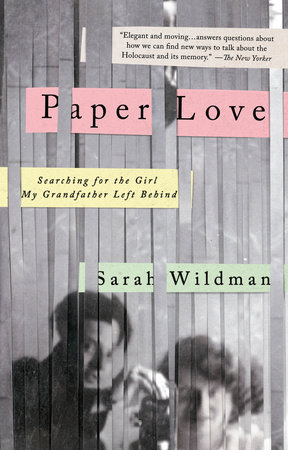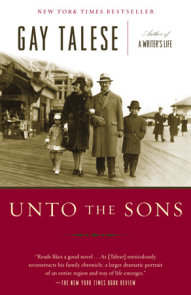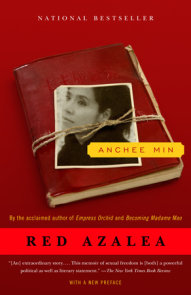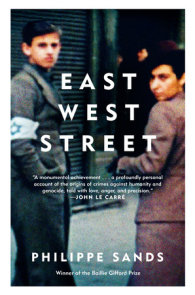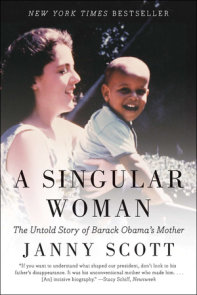READERS GUIDE
Questions and Topics for Discussion
INTRODUCTION
Sarah Wildman has reported across Europe and the Middle East for The New York Times, Slate, and The New Yorker, among other publications, and is a former New Republic staffer. She is the recipient of the Peter R. Weitz Prize from the German Marshall Fund of the United States, “for excellence and originality in reporting on Europe and the transatlantic relationship,” for the series in Slate where Paper Love originated. Wildman lives in Washington, D.C.
ABOUT SARAH WILDMAN
Years after her grandfather’s death, journalist Sarah Wildman stumbled upon a cache of his letters in a file labeled “Correspondence: Patients A–G.” What she found inside weren’t dry medical histories; instead what was written opened a path into the destroyed world that was her family’s prewar Vienna. One woman’s letters stood out: those from Valy—Valerie Scheftel. Her grandfather’s lover who had remained behind when he fled Europe six months after the Nazis annexed Austria.
Valy’s name wasn’t unknown to her—Wildman had once asked her grandmother about a dark-haired young woman whose images she found in an old photo album. “She was your grandfather’s true love,” her grandmother said at the time, and refused any other questions. But now, with the help of the letters, Wildman started to piece together Valy’s story. They revealed a woman desparate to escape and clinging to the memory of a love that defined her years of freedom.
Obsessed with Valy’s story, Wildman began a quest that lasted years and spanned continents. She discovered, to her shock, an entire world of other people searching for the same woman. On in the course of discovering Valy’s ultimate fate, she was forced to reexamine the story of her grandfather’s triumphant escape and how this history fit within her own life and in the process, she rescues a life seemingly lost to history.
DISCUSSION QUESTIONS
- The idea of love plays a large role in the book. What do you think Dorothy, Sarah Wildman’s grandmother, meant when she said Valy was Karl’s “true love”? Does the idea of that love change as the book progresses? In what way? What other ties link the people who Sarah Wildman writes about? How are they different forms of love?
- Paper Love rescues one woman’s life from being lost to history. How is this approach to history different from a more broad overview of the time period? How does it change your own understanding of history? Why is it important to tell people’s stories?
- A significant theme in the book is Sarah Wildman’s effort to understand her grandfather as a man and not as the larger-than-life figure of her childhood. How does she go about doing so? How do her own journeys mirror those of her grandfather?
- What do you think Wildman means when she says she is an “arbitrary” American? How do the choices of those who came before us—parents, grandparents—influence the way our lives play out decades later?
- What do you think of Valy’s choice to remain in Europe? Do you think she could have gone with Karl? Do you think he asked her to go? Or do you think she felt too faithful to her mother to flee with him? What do her choices say about the role of daughters during the time? And how do they connect with how we live today?
- Valy is in some ways an incredibly modern woman—she leaves her home country to study in a foreign city, alone, and she is as dedicated to her career as many professionals today. Was this a surprise to learn of women in the 1930s and early 1940s behaving in this way? In what other ways does she seem modern? And in what ways does her experience feel foreign, or more old-fashioned, than ours?
- Were you surprised that Valy chooses to travel into the Reich rather than seek to flee Europe from Czechoslovakia? How does Valy’s anonymity help her in Berlin? And how does it impact her fate?
- During the years that Valy lives in Berlin—1939 through 1943—restrictions on life for Jews become more and more arduous as time goes on. How do these restrictions serve the Nazis? How do they affect the Jewish community? What goal did the Nazis have in taking away something like, for example, the right to resole shoes, or to buy eggs? What does this say about the Nazi relationship to the Jews? We often think of extermination as being the Nazi objective. What other goals seem to have been part of the Nazi plan?
- Karl’s efforts in the United States on behalf of Valy and her mother are mostly unknown—but there are clues that he did try to buy visas for them. What prevented him from securing them sooner? Was it surprising to learn of Karl’s experience on these shores? Was money the only problem?
- Sarah Wildman discovers that someone else had come looking for Valy in the German archives in the 1950s. Were the means of searching after the war in some ways more effective than our methods now? Why does she need to turn to such an antiquated method of searching to find out who came before her? What does it say about about how reliant we have become on modern technologies?
- Do you think Sarah Wildman’s grandfather felt guilty? What do you think he felt when he received Valy’s letters? Why did he not respond more quickly, or more often?
- Sarah Wildman grew up thinking that “everyone” had gotten out, but this was a fiction. What does Karl’s collection reveal about the meaning of “everyone”? Can you picture the people who populate your own life? What circles would you take with you? What would happen if the only people you could take are your nuclear family? Who would be missing?







